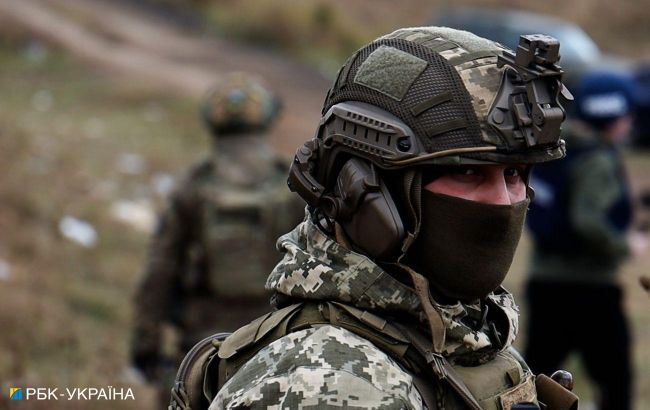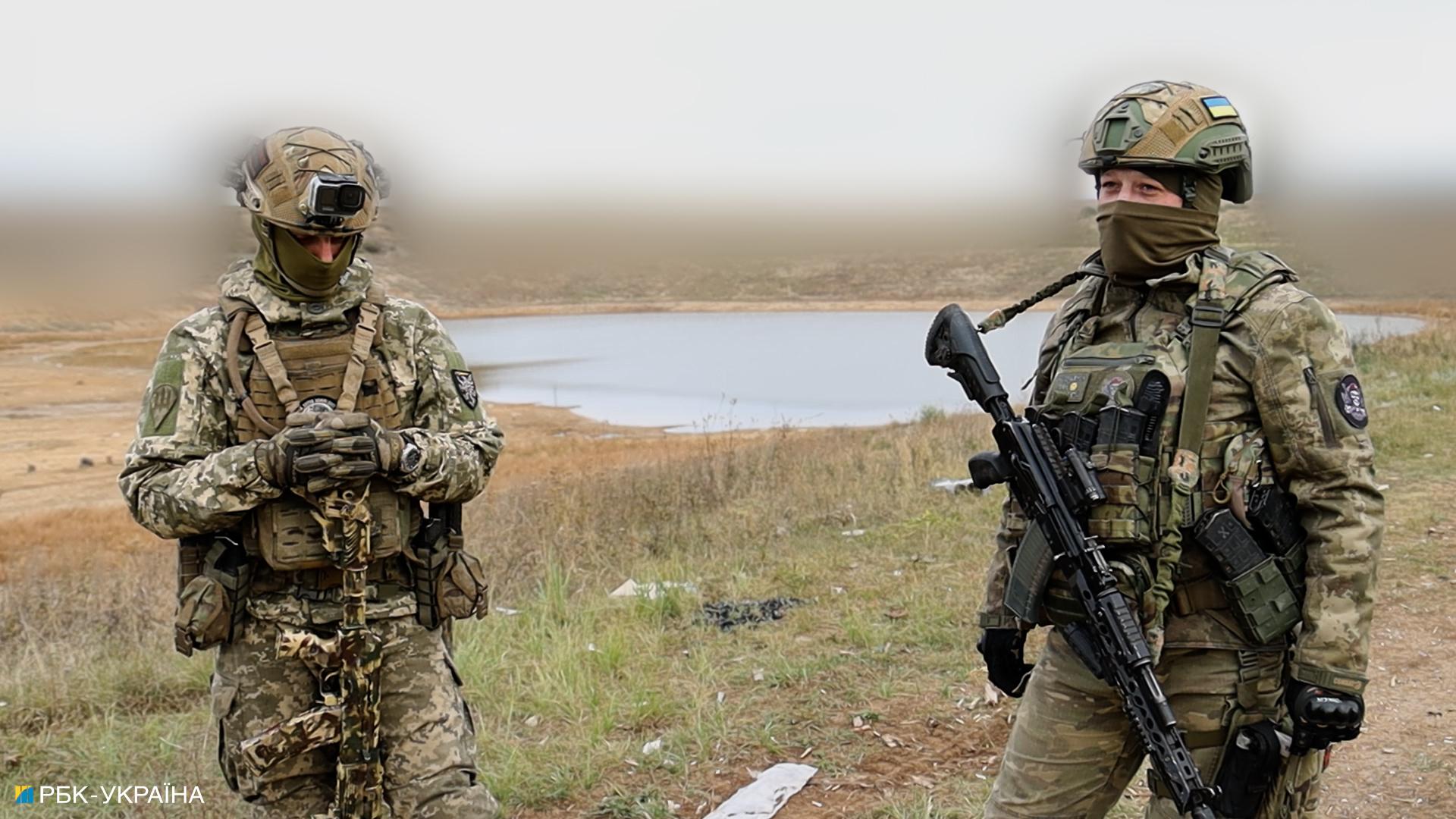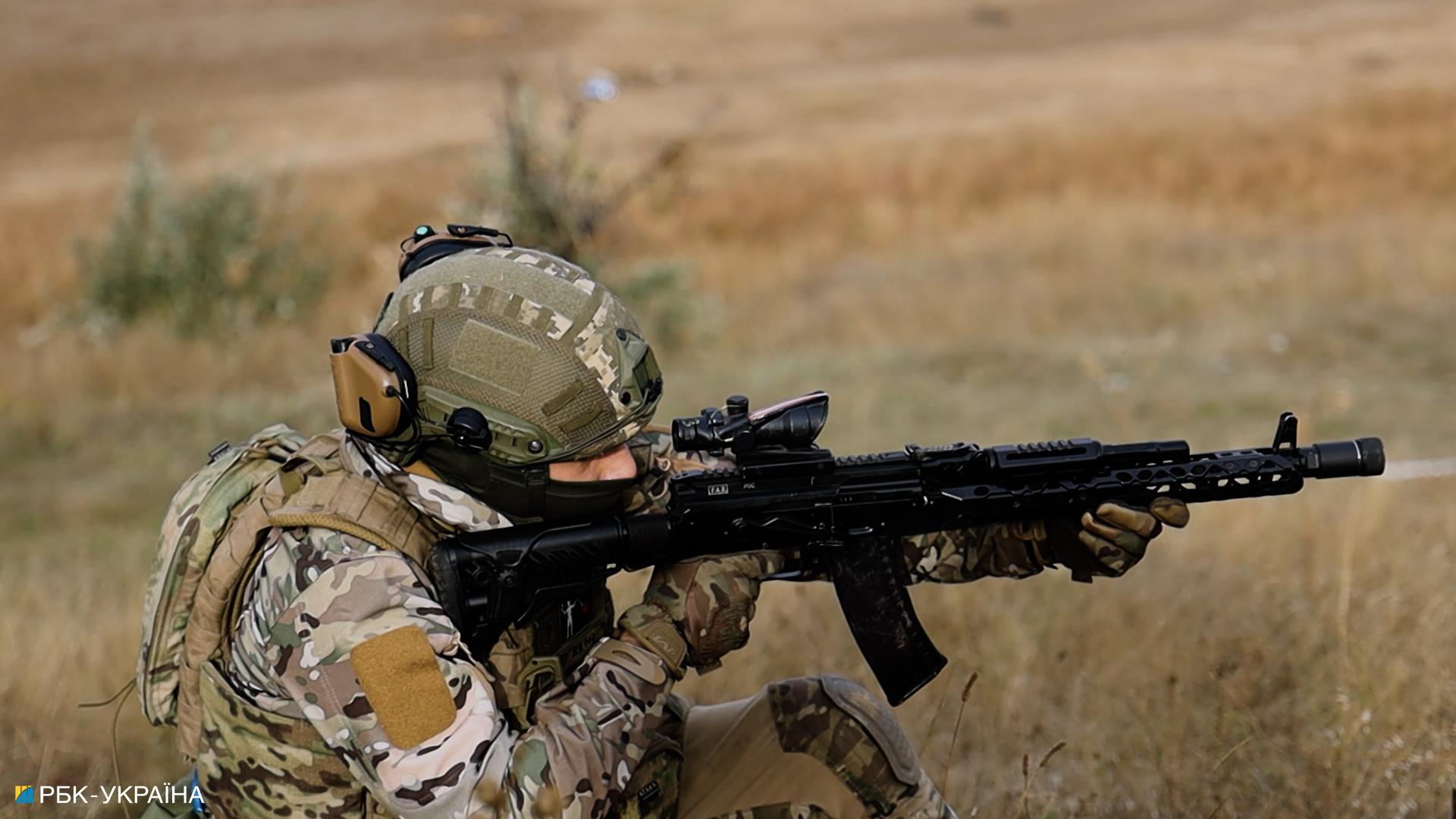Bakhmut liberation next? Interview with the 80th Brigade paratroopers
 Photo: Recon soldier from the 80th Brigade (Anastasiia Rokytna, RBC-Ukraine)
Photo: Recon soldier from the 80th Brigade (Anastasiia Rokytna, RBC-Ukraine)
Liberation of Klishchiivka, the Ukrainian counteroffensive in the Bakhmut direction, and the work of Ukrainian reconnaissance units – in a report by RBC-Ukraine from the Donbas.
In September, the Armed Forces reported the liberation of Klishchiivka, located to the south of Bakhmut. Among others, the 80th Airborne Assault Brigade was involved in capturing this settlement. According to the soldiers, the battles for Klishchiivka were difficult and exhausting. The enemy made every effort to prevent them from reaching the occupied settlement, using automatic and anti-tank grenade launchers, mortars, small arms, and reactive artillery, as well as drones and aviation.
Despite the Ukrainian military advance, the Russians did not cease their assaults, launching waves of attacks against the Ukrainian positions. Nevertheless, on September 17, the Ukrainian Armed Forces took Klishchiivka under their control.
RBC-Ukraine managed to visit the training ground with the reconnaissance officers of the 80th Brigade to speak with them and see how they are preparing for further work in the Bakhmut direction.
This is standard practice - if soldiers are not fighting, they are preparing for fighting. You need to hone your skills, even when in combat conditions, the only thought is how to survive. Basic knowledge of combat is what comes to the rescue in such situations. This is precisely what they are studying and practicing on the training ground.

Some of the fighters were in service before the major invasion, while others volunteered after February 24. Each of them has a family waiting at home, which they talk about with a warm yet bitter smile – they miss them. They don't disclose their call signs, let alone their names. The work of the reconnaissance unit involves specific tasks that must be carried out quietly, efficiently, and discreetly.
"In the conditions of today's war, we have a wide range of tasks, including evacuating the wounded. But our main task is to gather intelligence on the front line, support the assault group, and then gather intelligence again and support the group. This is how we work, and this is how the liberation of Klishchiivka happened," one of the fighters explains.
Every step of the group was meticulously planned, but the situation was constantly changing. The enemy held on to Klishchiivka firmly during its four months of occupation, clinging to it like a tick.
According to the reconnaissance team, despite the fact that the settlement is now under the control of Ukrainian forces, the situation remains challenging. Russians continue to shell it, and true peace for the town is not expected anytime soon. It was essential for the enemy because of its proximity to Bakhmut, influencing the logistic routes through which the Russian army supplies weaponry. The hills around Klishchiivka allow for control over both Bakhmut and the road to Horlivka, which passes 4 kilometers to the east.
Furthermore, the closer the Ukrainian artillery approaches, the deeper it can strike into the enemy's rear. Therefore, Klishchiivka remains under constant fire, with ongoing battles on its outskirts.
"After the loss of Andriivka and Klishchiivka, the enemy has launched numerous counterattacks from different directions, attempting unsuccessfully to regain their lost positions. These seemingly small towns were vital elements of the enemy's defensive line, which extended from Bakhmut to Horlivka," stated Lieutenant General Oleksandr Syrskyi, the commander of the Ukrainian Ground Forces.
In the latest report from the Institute for the Study of War (ISW), it is mentioned that Ukrainian forces have advanced north of Klishchiivka, crossing the railway line. According to experts, Ukrainian units have crossed the railway line to the north of Klishchiivka, which is located about seven kilometers southwest of Bakhmut. This confirms previous statements by the General Staff of the Ukrainian Armed Forces and even Russian propaganda war correspondents.
Back in July, Syrskyi also mentioned that the strategic goal of the Ukrainian Armed Forces in this direction is to encircle Bakhmut. Considering the direction of the Ukrainian counteroffensive in this area, this goal is still relevant. The Ukrainian army is attempting to approach from the "back door" to put pressure on the occupiers. This is the mission of the 80th Airborne Assault Brigade, the same unit we've been talking to on the training ground.

Right now, they are taking up arms to engage in a simulated battle against the hypothetical enemy. It's evident that they have worked together before, as some of their actions go unspoken, and they communicate through signal gestures. During a break, we approach them to talk, and even in conversation, their coordination is palpable: one starts answering, and the other continues.
That's when we learn that the Russians in this area are attempting to gain control of the sky by using FPV drones that actively roam along the frontline. These drones have become a new challenge for Ukrainian soldiers, as the enemy has managed to establish production and training in this regard. Russian drone operators work quite skillfully on this front, attacking both equipment and personnel.
"But we have a response to every one of their innovations. In fact, they saw the effectiveness of our drone work and picked up on it. But we've learned to fight with these drones as well," one of the soldiers explains.
He's unsure if they will be able to liberate Bakhmut by the end of winter, mentioning that "resources exist on both the Ukrainian side for advancing and on the Russian side for defending." However, he is certain about one thing: the fight must continue. Despite the weariness, their fellow soldiers are not ready for any kind of ceasefire.
"We now have a chance to repel them. No peaceful negotiations will help, as they will come back again. We need to put an end to this war. A few years after such a 'ceasefire,' they may be more prepared and attack again," the soldiers believe.
The military has the strength and motivation. Many mention fallen comrades during the conversation, and some even contemplate their own death. Each new operation carries a high risk. With laughter, they try to push aside thoughts of the worst, but each one knows the reality on the battlefield. It's crucial for Ukrainian soldiers to support one another and know that in case of need, a fellow comrade will help and pull them out of the fire of death.
This cannot be said about the enemy. According to the soldiers, they don't retrieve the wounded, leaving them to rot on Ukrainian soil. Presumably, they feel the attitude toward them from their own command, and consequently, they treat each other the same way.
"They don't want to take the wounded. And those wounded cry out; we can hear them clearly. Their cries spread across the field. They die because they aren't given help," says a Ukrainian soldier.
Such a reality is encountered frequently on the eastern front.
And if they've managed to take control of Klishchiivka and Andriivka, there are still many months ahead for the liberation of other populated areas, at least to get closer to Bakhmut.

